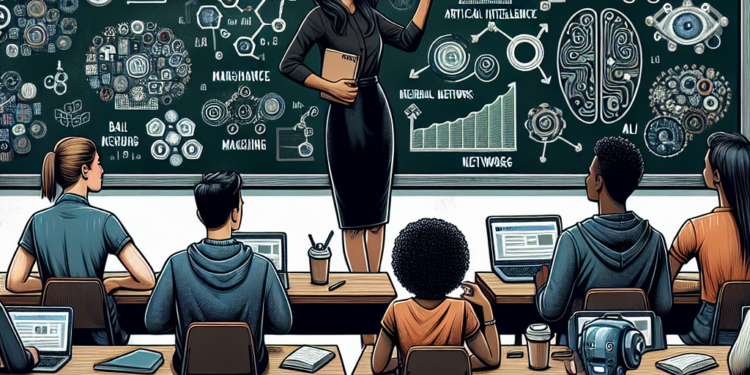Artificial Intelligence, or AI, is a rapidly developing field that has the potential to revolutionize the way we live and work. From self-driving cars to virtual assistants, AI is already playing a major role in our daily lives. But for those who are new to the concept, AI can seem daunting and complex. In this article, we will break down the key concepts of AI for beginners, explaining what AI is, how it works, and why it is important.
What is AI?
At its core, AI refers to the development of machines that are able to perform tasks that typically require human intelligence. This can include things like speech recognition, visual perception, and decision making. AI systems are designed to learn from experience, make decisions, and adapt to new situations.
There are two main types of AI: narrow AI and general AI. Narrow AI, also known as weak AI, is designed to perform specific tasks, such as playing chess or driving a car. General AI, on the other hand, is the idea of creating machines that can perform any intellectual task that a human can. General AI is still largely theoretical and remains a goal of many researchers in the field.
How does AI work?
AI systems are typically built using machine learning algorithms, which are algorithms that enable machines to learn from data. These algorithms are fed large amounts of data, which they use to identify patterns and make predictions. As they are exposed to more data, they become better at performing the tasks they are designed for.
There are several different types of machine learning algorithms, including supervised learning, unsupervised learning, and reinforcement learning. In supervised learning, the algorithm is trained on a labeled dataset, which means that the input data is paired with the correct output. Unsupervised learning, on the other hand, involves training the algorithm on an unlabeled dataset, allowing it to identify patterns and relationships in the data. Reinforcement learning is a type of learning in which the algorithm is rewarded or punished based on its actions, allowing it to learn through trial and error.
Why is AI important?
AI has the potential to revolutionize a wide range of industries, from healthcare to finance to transportation. By automating tasks that are currently performed by humans, AI can increase efficiency, reduce costs, and improve accuracy. In the healthcare industry, for example, AI is being used to diagnose diseases, predict patient outcomes, and develop personalized treatment plans. In the finance industry, AI is being used to detect fraud, optimize trading strategies, and automate customer service.
AI also has the potential to create new jobs and industries. As AI systems become more advanced, they will require skilled workers to design, develop, and maintain them. This has the potential to create new opportunities for workers with skills in data science, computer programming, and artificial intelligence.
Despite its potential benefits, AI also raises ethical and social concerns. As AI systems become more powerful, there is the potential for them to make decisions that impact human lives in significant ways. This has led to concerns about bias, transparency, and accountability in AI systems. It is important for developers and policymakers to carefully consider these issues and work to ensure that AI is used in a responsible and ethical manner.
In conclusion, AI is a rapidly developing field that has the potential to revolutionize the way we live and work. By understanding the key concepts of AI, including what it is, how it works, and why it is important, beginners can gain a better understanding of this exciting and complex field. As AI continues to evolve, it is important for individuals to stay informed and engaged with the latest developments in order to take advantage of the opportunities that AI presents.













